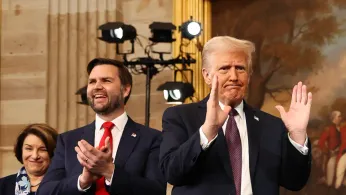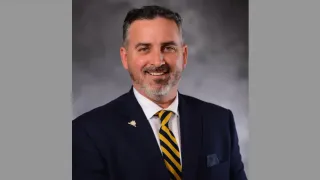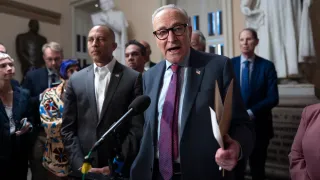
6 hours ago
Global Elections See Rise of Anti-Queer Rhetoric as Candidates Campaign on Queer Rights Rollbacks
READ TIME: 3 MIN.
Recent elections across the globe have seen a notable escalation in anti-LGBTQ+ rhetoric, with candidates and political parties openly campaigning on platforms designed to restrict queer rights and roll back previous gains. In a pattern that extends from the Americas to Europe and into parts of Asia, anti-queer politics is no longer the strategy of fringe actors but has become central to mainstream campaigns, reshaping the electoral landscape and posing significant threats to queer communities .
This wave of resistance against queer rights is unprecedented in its coordination and scope. According to the Carnegie Endowment for International Peace, a new transnational movement has emerged, actively opposing gender equality and queer protections through legislation, executive orders, and targeted social campaigns. For instance, in January 2025, the United States saw an executive order directing federal agencies to remove references to "gender ideology"—a term commonly used in anti-queer discourse—from all government communications .
In Hungary, lawmakers passed legislation banning the Budapest Pride event, while also empowering authorities to surveil and track event attendees, marking a stark rollback of freedom of assembly for queer people . In Argentina, the government has moved to remove femicide from the criminal code, arguing that laws protecting women and queer people are symptomatic of "radical feminism" and "woke" culture .
Research indicates that state-sponsored homophobia and anti-queer resolutions can have measurable effects on voter participation and outcomes. A 2025 working paper from the Toulouse School of Economics focused on the 2019 Polish parliamentary elections, where municipalities adopting anti-queer resolutions saw a significant drop in voter turnout, particularly among opposition parties. Meanwhile, the ruling party, which had championed these resolutions, gained a modest but meaningful increase in its vote share. The study concluded that such measures can alter electoral dynamics and entrench political power, especially in polarized environments .
These developments are not isolated to any single country or region. Anti-queer platforms have been actively promoted in electoral campaigns across Europe, Latin America, and parts of Asia, often drawing on similar rhetoric and policy proposals. The movement is facilitated by the rapid spread of disinformation on social media platforms, with both state and non-state actors deploying digital tools to smear queer activists and disseminate anti-queer narratives .
In El Salvador and Thailand, queer and reproductive rights activists have faced coordinated online harassment, surveillance, and public vilification . The European Union Agency for Fundamental Rights reported a marked increase in hate-motivated violence against queer people from 2019 to 2023, with a growing number of respondents experiencing multiple attacks .
Despite the mounting challenges, queer communities and allies continue to mobilize in defense of hard-won rights. International advocacy organizations and grassroots movements have responded with campaigns, legal challenges, and public demonstrations. UN Secretary-General António Guterres, in remarks delivered in March 2025, warned that "a surge in misogyny and a furious kickback against equality" could reverse decades of progress in gender and queer equality. He called on member states to reaffirm their commitments to human rights and resist regressive efforts to curtail queer and gender-diverse people's freedoms .
The global trend toward anti-LGBTQ+ electoral campaigning is alarming for queer communities and their allies. While these platforms have proven effective for certain political actors, research suggests that their longer-term impact may include both increased political polarization and the mobilization of new coalitions for equality and justice.






